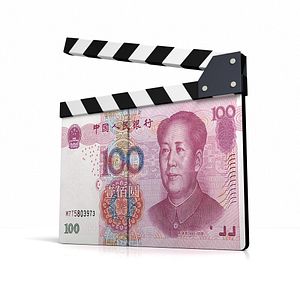The directors of the last two Captain America movies are developing a superhero trilogy for Chinese audiences, whose as-yet unnamed protagonist has already been nicknamed “Captain China.”
It may sound like a derivative farce, but such collaborations could be a signal of economic stability. China’s growth continues to contract as Beijing rebalances the economy to run on consumerism, which will require a stronger service sector, and the swiftest way to achieve that is by learning from industry leaders. In the film industry, that means Hollywood.
This isn’t merely for China’s sake, either. Training China up on tertiary sector industries is conducive to a more stable global economy, not to mention wildly lucrative. Unfortunately, it’s also potentially harmful. A number of Western companies, notably Cisco Systems, profited greatly in the early 2000s by providing China with networking hardware and, in the process, knowingly co-created the Great Firewall, the world’s most advanced Internet censorship apparatus. But when it comes to thought control, even harder than censoring the truth is the challenge of crafting believable lies, and that comes down to storytelling ability.
China hasn’t had much success turning its propaganda into blockbuster fare. In Youth Culture in China, Paul Clark writes that in the 1960s, villagers were bored by the incessant loudspeaker retellings of propaganda plays. And in Chinese Cinema: Culture and Politics Since 1949, he notes that while 7.3 billion people reportedly viewed the propaganda film Taking Tiger Mountain by Strategy, this “bore little relationship to the actual popularity of the film.” People went to showings because non-attendance was read as a lack of loyalty.
Little has changed since. When a film that glorified the founding of the Chinese Communist Party flopped in 2011, state-owned firms were forced to purchase tickets, and several anti-Japanese war dramas were pulled last year after viewers complained about their absurd plots. Naturally, Beijing salivates for the day when such clunky methods can be shelved because its propaganda is so good people will spoon it up.
And this is what makes Hollywood collaborations worrisome. In a country where academics believe Zootopia is predatory American propaganda, you can bet that once their film industry evolves, it will be used in disquieting ways. As I wrote in last month’s magazine, China has progressed in various industries by purchasing advanced companies and sucking them dry of talent or technology. Entertainment is no exception. As Stanley Rosen, a political science professor at the University of Southern California, recently observed, “Hollywood has was China lacks. Storytelling ability, marketing, and distribution.”
China has therefore been snapping up Hollywood studios. After Wanda bought the studio that made the Batman trilogy in January, Jonathan Landreth, managing editor of ChinaFile, commented, “the deal sees Legendary unwittingly becoming one of the most powerful channels for Beijing’s worldview, a worldview that bars open discussion of the jailing of dissidents and the disappearing of booksellers.”
The following month, a Chinese company became a major investor in Hollywood’s most successful studio, Universal. Wanda was also reported last year to be eyeing Lionsgate, MGM, and DreamWorks, and DMG Yinji is set to become a major stakeholder in Paramount Pictures. There are also collaborations involving Lionsgate, Columbia, 20th Century Fox, STX, and others. In fact, the next Matt Damon film will be a Wanda project with the manifestly patriotic title The Great Wall.
Hollywood will inevitably make China’s propaganda better, and China will make Hollywood worse, as Hollywood increasingly plays by Beijing’s rules in order to access the Chinese market. The upcoming Marvel film Doctor Strange, for example, chose the white British actress Tilda Swinton to play the Tibetan character the Ancient One in order not to offend Chinese censors.
But this will only go so far because certain movies simply aren’t possible under these conditions. The Russo brothers’ latest project, Captain America: Civil War, is one of the best Marvel films to date, and a spokesperson for the studio that will be working with them on the Captain China trilogy, the first installment of which enters production later this year, claimed the Chinese hero will be “similar to Captain America.”
But the latest Captain America film shines partly because it critically examines American exceptionalism. The character wreaks havoc abroad, refuses to bend to the UN’s authority, and supports a criminal with whom he has personal ties. If a Captain China film were that honest, its protagonist would resemble Jiang Bing Man, but rest assured, it won’t be.
China is already the world’s second-largest film market, and Hollywood has been trying, and failing, to tap into it. If anyone can buck that trend, it’s the Russo brothers. But unless something gives, all we’ll see is Hollywood making more money, Beijing grabbing more power, and China’s prolefeed getting more interesting.

































